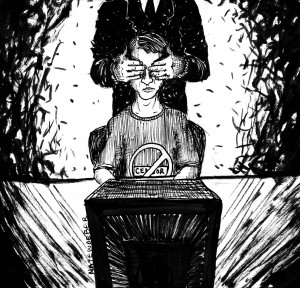
Government censorship is not OK.
Ever.
The First Amendment of the Constitution, arguably the most celebrated and oft-quoted amendment in the world today, spells out specifically that government cannot censor speech, religious practices, press or ability to assemble. Logically, this should extend to the modern world, namely the Internet, but some senators don’t agree.
On Sept. 20, Vermont Sen. Patrick Leahy introduced the Combating Online Infringement and Counterfeits Act. The act allows the attorney general to order Internet sites shut down if they are judged to be “dedicated to infringing activities.” By this, the writers mean any site whose central activities involve the distribution of counterfeit materials and infringement of copyrights. While this seems well-intended, it is far from thought out. The blacklist is domain-name based, meaning that if the National Hockey League states that one video of Brad Richards losing his balance was put up without its express written consent, the entirety of YouTube could be in jeopardy.
This bill isn’t being introduced by radicals. Leahy is the chairman of the Senate Judiciary Committee. He has the bipartisan support of two Republicans, Orrin Hatch of Utah and George Voinovich of Ohio, and eight other Democrats, including vice-chairman of the Democratic Conference Charles Schumer of New York. The group is backed by numerous entertainment industry trade groups who stand to benefit financially from this bill’s passage because people will be much harder pressed to get their material without paying them.
We live in a free nation where people are free to post whatever they can on YouTube, Twitter and any number of other social media sites. This isn’t free of consequence — copyright-infringing YouTube posts are currently taken down as soon as attention is brought to the administrators. If people aren’t careful with what they post on Twitter or Facebook, their careers can be destroyed.
This bill would set the U.S. further back than Afghanistan in terms of Internet freedom. Afghanistan censors Facebook, YouTube and Twitter among many other domains, but the government finds these sites potentially offensive and amoral, something that can at least be understood. If this bill were to pass, the United States would have the ability to censor these sites so that the entertainment industry’s pockets could get a little deeper.
The bill was met with large public outcry from technology trade groups and won’t be looked at again until after this election season, but the senators backing it are too powerful for it not to be looked at again. Write your representative. Remind them they were not put in office to restrict the public’s information flow.

























